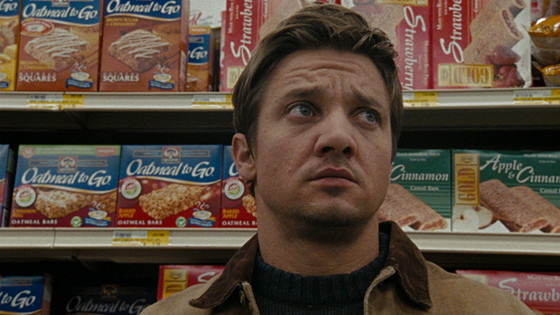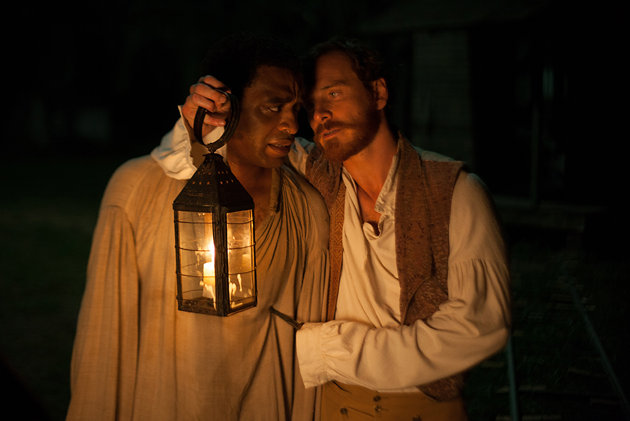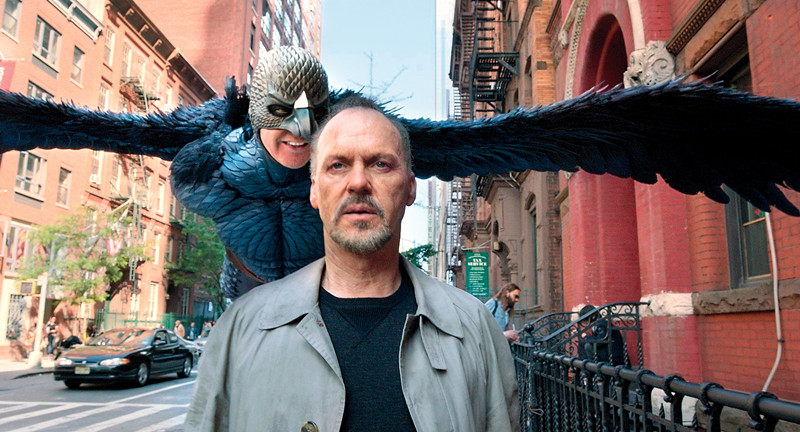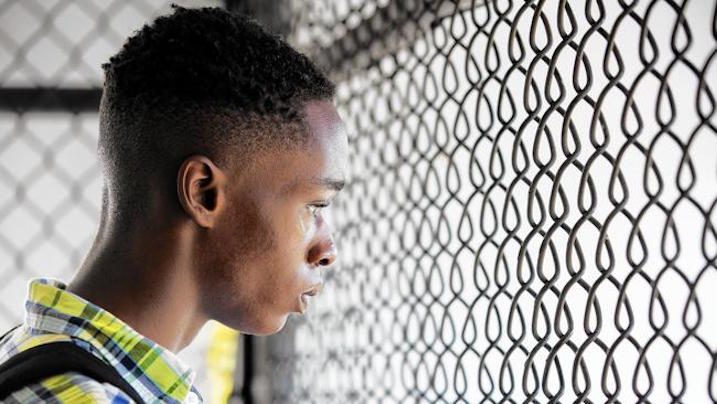5. The Hurt Locker (2009)

Usually films will open with some sort of biblical or poetic quote, but “The Hurt Locker” starts out with a simple statement: “War is a drug.” This is a statement I’m sure we all know to be a fact, even if we don’t want to accept it. The main character in this film is Staff Sgt. William James (Jeremy Renner), he isn’t a hero like most other stories but rather a man who knows his job. His job is a dangerous one, he defuses bombs, but his ability with this job is almost an obsessive one. He knows bombs inside and out and has developed an uncanny psychology to the act of bomb making, he can spot a bomber from a mile away.
Director Kathryn Bigelow has shown to be a master at telling stories of deeply complex humans who are in mortal danger, as always, she knows to tell us who these people are fist then she focuses on the danger. These are men and women who sign up willingly to put themselves in danger and for many of them they can’t do without it. James isn’t treated like a hero nor does he try to be one, he’s not looking for medals or certificates but is doing what he knows best.
Through and through there is no faux danger, the danger is real and is felt viscerally in every passing moment of the film. Kathryn Bigelow famously became the first woman to win Best Director with this film, and it wasn’t a PR stunt, it was truly earned.
4. 12 Years a Slave (2013)

We’ve seen other films that deal with the same subject and time period, from the romanticism of “Gone With the Wind” to the admittedly fun and hilarious exploitation of “Django Unchained”. Both of which stylize themselves in a manner to make the concept more digestible for audiences. But “12 Years a Slave” doesn’t do anything less then submerse us into the horrifying reality of what was committed against many during this dark period. Based on the true story of Solomon Northup, a black man with an education living in New York during the 1840’s who’s sold into slavery and shipped to the South. He lives 12 years under the life as a slave, being subjected to the ghoulish atrocities committed to many of his kind.
This is a film heavy in subject matter but rich in gifted performances. The entire cast is top notch from Chiwetel Ejiofor, Lupita Nyong’o, Michael Fassbender, and Benedict Cumberbatch. Many of which convey the world around them with little words, relying more on the language of their bodies to tell their stories. With a subject like this you’re bound to ask yourself if it’s the subject matter or the actual quality that’s making the film.
Of course, we’re going to feel sad watching the suffering black people went through back then, but is it a gimmick? Absolutely not. This is an intellectually and emotionally powerful film that’s beautiful in its scope and eloquent in its expression.
3. Spotlight (2015)

Back in 2002, when the Boston Globe Spotlight Division released their investigation into the matter of child sex abuse in the Catholic Church, I was actually going to a Catholic school at the time. The story has had a prominent effect in my life growing up and as such the film resonates in a deep way that speaks to both the personal and the universal. In recent years we’ve become used to the idea of media and journalism being corrupt, bias, and untrustworthy. But the true power of journalism is to reveal greater truths and shed light on stories that need to be told.
“Spotlight” is a film built entirely off procedure, this is grounded in its investigation from beginning to end but manages to rivet and keep us in massive suspense purely through the power of words and experiences. There’s no car chases or physical threat of people trying to stop them, but it never allows this to be a handicap – instead pulling us along through a challenging ride of discovery that makes those involved question everything on personal, emotional, and spiritual levels. In the years since “Spotlight” was released the relevancy of its subject has only gotten more prominent, it may be impossible to watch it now without thinking of the recent Me Too Movement.
According to Rainn, every 92 seconds an American is sexually assaulted, on average there are an estimated 321,500 victims of sexual abuse every year in the United States alone, and 1 out of every 6 women have experienced sexual abuse (attempted or completed) during their lifetime. The truth of the matter is that in the last 25 years only 2% – 10% of sexual abuse allegations have proven to be false, the rest are legitimate. Now abuse victims, both men and women, have an avenue to tell their stories and let themselves be heard, hopefully we as a society can learn to grow and better ourselves.
2. Birdman (2014)

There’s an energy to “Birdman” unlike any other film I’ve ever seen. The obvious explanation to this is the ingenious way in which it’s shot and edited to look like one continuous camera take. But there’s more to it than just that. This is a film that’s so dreamlike and mystifying in its content and technique. This is a combination of many great things: it’s an actors film, it’s a Hollywood film, it’s a philosophical film, it’s a family drama, it’s a celebration of art and theater, it’s a criticism on the state of art itself, it’s a semi-autobiographical film, it’s everything you can imagine out of a film of great ambition and magnitude, and it’s one hell of a fun time.
The film runs parallels between fiction and reality as Michael Keaton plays an out of date actor who attempts to rejuvenate his career with a Broadway show of “What We Talk About When We Talk About Love” by Raymond Carver. Riggan Thompson is of course so similar to Michael Keaton that we can’t help but draw the similarity, the irony being that Keaton wasn’t even in mind when the film was initially being written.
The film cements us into his endless stream of consciousness, like a river that continuously flows and never stops. Following the events of being backstage in the theater world, how he tries to reconnect with his family after abandoning them for so long, how he’s trying to save his career, but more over how he’s trying to find himself and his place in life.
When I first saw “Birdman” my main criticism was in its statement of Blockbuster and Comic Book movies. While these genres have never been my taste, it is foolish to suggest that they’re lesser works of art or take no talent or craftsmanship to put together. But as the years have gone on and my distaste for superheroes has grown, I came back to this film more and as a result it’s only gotten better in my mind. I guess it just takes the proper amount of time for everything to fall into place and fit perfectly.
1. Moonlight (2016)

I’ve mentioned in another article that in the entire history of the Academy Awards there’s only been 9 instances where they gave the Best Picture to what I also felt was the best picture of the year. “Moonlight” is one of those very few films.
There’s no other film in recent memory that’s made me think of Roger Ebert’s famous statement that film is the greatest source of empathy in the world, a vehicle in which we have the ability as audience members to step inside someone else’s shoes and experience what it’s like to live their life. I for one am a straight white man in his mid-20’s, I’ve never been discriminated against for the color of my skin or for who I love. So, watching Chiron live his life through the multiple stages was a truly magnanimous experience to let us in on the private moments of lives that are very different from ours.
Chiron lives a rough life, he’s a quiet and shy little boy with a drug addicted mother in a rough part of the world where poverty and crime are on every street corner. He’s beginning to discover things inside himself that at his tender age he doesn’t understand, and he doesn’t know why people around him discriminate him for these things. When he asks Juan (Mahershala Ali) “what’s a faggot?” you can see the pain across everyone involved.
There’s a world of repercussion behind this one exchange Chiron and Juan have with each other – a search for a father figure, conflicts about one’s identity, childhood innocence, and the guilt people feel knowing the truth about how they’re influencing each other’s lives and environments. When Juan has to admit to Chiron that he sells the drugs that his mother is addicted to and holds his head down in shame, an entire lifetime of suppression is now weighed down upon him.
When “Moonlight” was released there was a lot of discussion as to whether this was a “black film” or a “gay film”. And frankly this reaction shows many people’s common misunderstanding, or flat out ignorance, on the subject of intersectionality. A sociological theory that various aspects of one’s person do not exist in isolation. Race, gender, and sexual orientation are not separated by one another and actually have interwoven relationships; one influences the other both personally and culturally.
This shows that all forms of prejudice interrelate with one another to create social systems of oppression. Chiron faces discrimination in various forms throughout his life; he’s picked on by bullies because he’s gay, once he stands up for himself and fights back he’s criminalized because he’s black, and he’s ostracized from his environment and society as a whole because he’s poor. This is truly a marvel of a film and stands as one of the greatest this modern generation has brought to us. Sadly, I have a bad feeling this film will probably be best remembered for the unfortunate way in which it won Best Picture. Please don’t let that be the case.